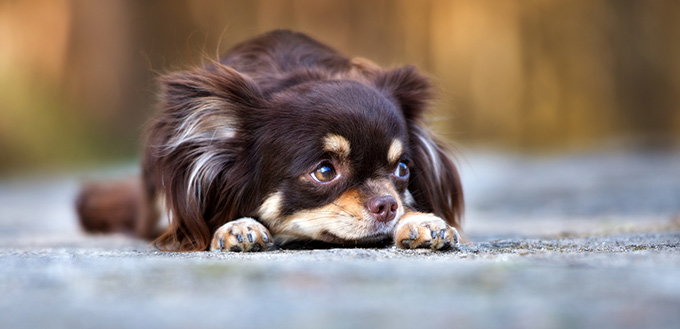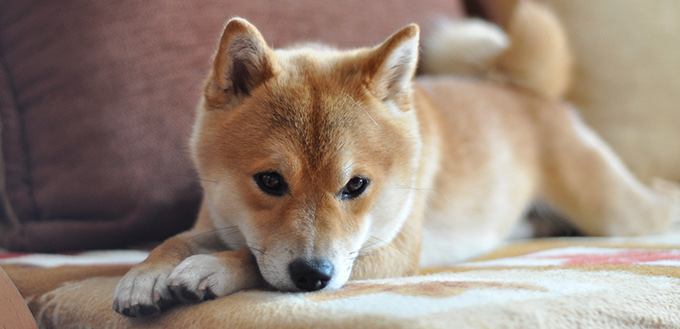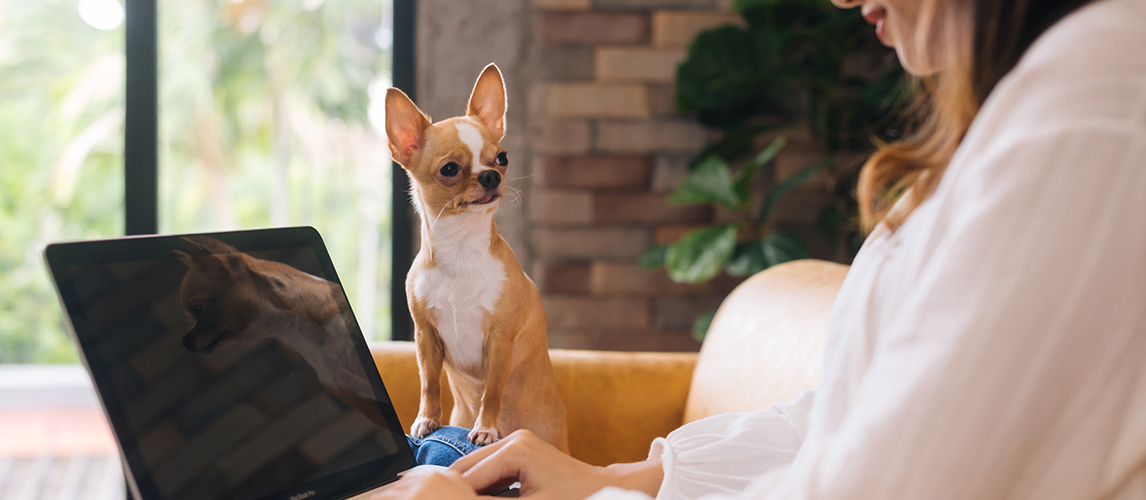Dogs are almost as emotional as humans. These are animals that exhibit emotions such as happiness, frustration, sadness, anger, and even guilt. No doubt, they have a lot of feelings to the point many owners start to wonder what might lead to such feelings being evoked. The one question many dog lovers have asked over the years is if indeed, dogs can feel embarrassed. Research has shown that this is a very high possibility.
Dogs indeed feel self-conscious, and they exhibit subtle, embarrassed-like tendencies. This is very different from how a human behaves when they experience social humiliation. Dogs and animals, in general, often feel something very similar to secondary emotions such as embarrassment. Their feelings, however, tend to be more complicated than the average human’s emotional reaction. Our dog guide below provides you with some sure signs to tell if your dog feels embarrassed, as well as the best ways to deal with this embarrassment.

What Research Says
Emotions drive humans in many of their activities and tasks. We feel anger, love, sadness, and many other emotions endlessly, and this allows us to make individual decisions for our daily tasks. Animals don’t have such freedom and control over what they feel. Embarrassment is not only felt by humans, as complicated as it may be. This is a secondary feeling which can be contacted by animals as well, dogs especially.
According to scientists, dogs often exhibit instant reactions to situations, and this might mean that they can’t experience embarrassment. This school of thought stems from the fact that discomfort may be a feeling way beyond their regular spectrum. Several tests and experiments have been undertaken by different institutions, to ascertain if indeed dogs and other animals experience emotions, but all results have not been definite. The best answer is given by one scientist, to whether dogs feel some form of embarrassment is ‘maybe’ because the brains of dogs are very hard to pin down and thoroughly understand.
Other researchers such as Dr. Bekoff have stated boldly that dogs do indeed exhibit feelings of discomfort and shyness and that the meaning and effect of embarrassment on dogs differ from the purpose and impact on humans. In extreme cases, some dogs tend to show signs of humiliation. These results came after hours and decades of studying dogs. However, many other researchers disagree with this notion, stating that emotions such as embarrassment are too complicated and secondary for dogs to feel and exhibit.
They believe that dogs are animals with only an instant-reaction to feelings. The varying beliefs from history still exist in recent years, with several studies backing both views. Dog owners have disputed all contrary theories, stating boldly that the constant interaction with their pets has helped them believe in their ability to feel and react. One might then ask, how can you tell if indeed, a dog is feeling embarrassed?
Signs Your Dog is Embarrassed
Doggy embarrassment or humiliation is seen in many ways. The phenomenon was once studied in-depth by different groups of scientists, and their results were breathtaking. As a dog owner, there are some signs you can look at for, to know if your dog is feeling embarrassed or not. Dogs are like humans in many ways; thus, they exhibit some pretty visible signs when they’re feeling ashamed or sheepish.
The first way to know if a dog is feeling is embarrassed is by watching how they carry themselves. Study how your dog behaves after doing something goofy. They may become submissive or have a tough time meeting your eyes. In most cases, embarrassed dogs can act very sheepish and shy.
The signs mentioned above are perfect signs of embarrassment for dogs. There are various physical symptoms to look for in an embarrassed dog or ashamed puppy, such as when they walk funny, cringe a little, tuck their tails, furrow their brows and pin their ears down. The best part of all their signs is that they are very similar to our behaviors when we feel embarrassed.

Training Your Dog to Deal with Embarrassment
It has become pretty clear that not all dogs are the same. Their differences are what make them very special to their owners and everyone who comes into contact with them. With such differences, it is only natural that some dogs might feel embarrassed more than others. This is perfectly normal. Some dog breeds display signs of anger and distress when they feel embarrassed, and the best way to deal with this as their owner is through training. Training your dog out of their negative behaviors involves teaching them to find a safe space until their embarrassment is no more.
Dogs may undertake different methods when searching for their safe crate. By instincts, their first reaction to embarrassment is to hide. With training, you get to encourage them to go into their secure container instead, reducing the hours you spend looking for them. The safe crate is also ideal because it ensures the safety of your canine at all times, especially when they feel overwhelmed.
If your dog is one to get angry when embarrassed, we encourage you to employ essential words like ‘stop’ and ‘no,’ as these are basic yet important words that work in such instances. Telling them off prevents your dog from misbehaving out of anger at their embarrassment, and also teaches them the basic commands that will help control their emotional responses. Finally, show your dog a lot of love, as this will reassure him to help get over the embarrassment.
As humans, we know all too well how embarrassment can affect other parts of our lives, and this is no different from animals such as dogs. When such emotions aren’t correctly taken care of, your dog might become violent or isolated. Both actions are extreme parts of the behavioral spectrum, and they can affect how he relates to you, your family, and visitors. Dog owners need to be patient during their teaching sessions with pets, to ensure that all feelings of embarrassment and humiliation are appropriately addressed. Having such training sessions will help build your dog’s confidence, and also strengthen your bond with your furry best friend.
Sources:
- John Perritano, Do Dogs Get Embarrassed When We Dress Them Up?, HowStuffWorks
- Mikkel Becker, Why Does My Dog… Look Guilty?, VetStreet
- Lynn Buzhardt, DVM, Guilty Or Innocent? Do Pets Know They Have Done Something Wrong When They Act “guilty”?, VCA Hospitals







